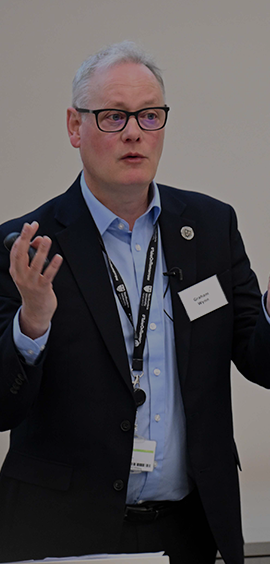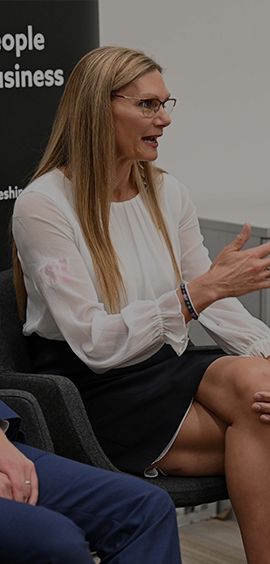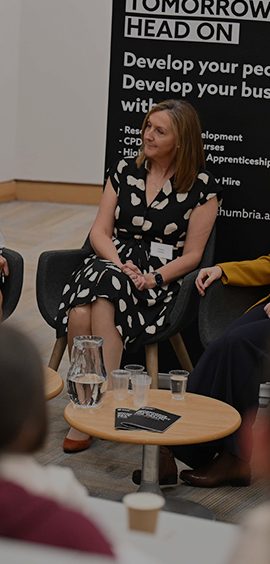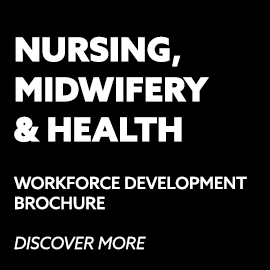-
Study
-
Quick Links
- Open Days & Events
- Real-World Learning
- Unlock Your Potential
- Tuition Fees, Funding & Scholarships
- Real World Learning
-
Undergraduate
- Application Guides
- UCAS Exhibitions
- Extended Degrees
- School & College Outreach
- Information for Parents
-
Postgraduate
- Application Guide
- Postgraduate Research Degrees
- Flexible Learning
- Change Direction
- Register your Interest
-
Student Life
- Students' Union
- The Hub - Student Blog
- Accommodation
- Northumbria Sport
- Support for Students
-
Learning Experience
- Real-World Learning
- Research-enriched learning
- Graduate Futures
- The Business Clinic
- Study Abroad
-
-
International
International
Northumbria’s global footprint touches every continent across the world, through our global partnerships across 17 institutions in 10 countries, to our 277,000 strong alumni community and 150 recruitment partners – we prepare our students for the challenges of tomorrow. Discover more about how to join Northumbria’s global family or our partnerships.
View our Global Footprint-
Quick Links
- Course Search
- Undergraduate Study
- Postgraduate Study
- Information for Parents
- London Campus
- Northumbria Pathway
- Cost of Living
- Sign up for Information
-
International Students
- Information for International Students
- Northumbria and your Country
- International Events
- Application Guide
- Entry Requirements and Education Country Agents
- Global Offices and Regional Teams
- English Requirements
- English Language Centre
- International student support
- Cost of Living
-
International Fees and Funding
- International Undergraduate Fees
- International Undergraduate Funding
- International Masters Fees
- International Masters Funding
- International Postgraduate Research Fees
- International Postgraduate Research Funding
- Useful Financial Information
-
International Partners
- Agent and Representatives Network
- Global Partnerships
- Global Community
-
International Mobility
- Study Abroad
- Information for Incoming Exchange Students
-
-
Business
Business
The world is changing faster than ever before. The future is there to be won by organisations who find ways to turn today's possibilities into tomorrows competitive edge. In a connected world, collaboration can be the key to success.
More on our Business Services-
Business Quick Links
- Contact Us
- Business Events
- Research and Consultancy
- Education and Training
- Workforce Development Courses
- Join our mailing list
-
Education and Training
- Higher and Degree Apprenticeships
- Continuing Professional Development
- Apprenticeship Fees & Funding
- Apprenticeship FAQs
- How to Develop an Apprentice
- Apprenticeship Vacancies
- Enquire Now
-
Research and Consultancy
- Space
- Energy
- AI Futures
- CHASE: Centre for Health and Social Equity
- NESST
-
-
Research
Research
Northumbria is a research-rich, business-focused, professional university with a global reputation for academic quality. We conduct ground-breaking research that is responsive to the science & technology, health & well being, economic and social and arts & cultural needs for the communities
Discover more about our Research-
Quick Links
- Research Peaks of Excellence
- Academic Departments
- Research Staff
- Postgraduate Research Studentships
- Research Events
-
Research at Northumbria
- Interdisciplinary Research Themes
- Research Impact
- REF
- Partners and Collaborators
-
Support for Researchers
- Research and Innovation Services Staff
- Researcher Development and Training
- Ethics, Integrity, and Trusted Research
- University Library
- Vice Chancellors Fellows
-
Research Degrees
- Postgraduate Research Overview
- Doctoral Training Partnerships and Centres
- Academic Departments
-
Research Culture
- Research Culture
- Research Culture Action Plan
- Concordats and Commitments
-
-
About Us
-
About Northumbria
- Our Strategy
- Our Staff
- Our Schools
- Place and Partnerships
- Leadership & Governance
- University Services
- Northumbria History
- Contact us
- Online Shop
-
-
Alumni
Alumni
Northumbria University is renowned for the calibre of its business-ready graduates. Our alumni network has over 253,000 graduates based in 178 countries worldwide in a range of sectors, our alumni are making a real impact on the world.
Our Alumni - Work For Us
Working Well in Healthcare - Transformative Experiential Learning and Simulated Environments
Our recent Working Well in Healthcare event designed to foster collaboration across the healthcare industry to tackle some of the most pressing workforce challenges.
As the second event in our ongoing series, this hybrid gathering focused on the theme: “Transformative Experiential Learning and Simulated Environments.” aimed to foster collaboration and innovative thinking to support education and professional development.
Keynote Speakers
We were honoured to welcome a distinguished line-up of speakers, including:
- Professor Paula Holt MBE DL, Senior Nursing Advisor at the Nursing and Midwifery Council
- Jamie Hunt, Head of Education at the Health and Care Professions Council
- Professor Graham Wynn, Pro Vice-Chancellor for Education at Northumbria University
- Professor Alison Machin, Head of Department for Nursing, Midwifery and Health at Northumbria University and Chair of the Council of Deans of Health
- Professor John Unsworth OBE, Deputy Pro Vice-Chancellor for Health and Life Sciences at Northumbria University and Chair of the Queen’s Nursing Institute
- Professor Sir Liam Donaldson, Chair of the North East and North Cumbria Integrated Care Board and former Chief Medical Officer for England
Sessions explored the power of simulated practice in supporting workforce development, the role of interprofessional learning, and how higher education institutions can play a pivotal part in reshaping clinical education. The day also featured real-world case studies, including a spotlight on Operating Department Practice (ODP) experiential education by Amy Bradburn, and a virtual showcase on the use of VR in healthcare training by Dr Alan Platt and Dominic Simpson.
Panel Highlights: Addressing the Realities of Simulated Practice
A key feature of the day was our expert panel discussion, “Myth-Busting: The Challenges, Changes and Concerns Around Simulated Practice.” This honest and forward-looking session tackled some of the misconceptions around replacing clinical practice hours with simulation, the impact on learners, and the opportunities this presents for organisations.
Commitment to Healthcare Excellence at Northumbria
Northumbria University has long been a leader in health and social care education. With a well-established portfolio of degrees, CPD and workforce development programmes, we’re proud to be ranked Top 20 in the UK for Nursing (Complete University Guide 2024) and to see 99% of our nursing graduates in highly skilled employment or further study within 15 months of graduation (Guardian University Guide 2024).
Our investment in simulated and experiential learning environments is part of our commitment to shaping a future-ready workforce—and this event served as a valuable platform to learn, share and collaborate on this critical agenda.
Thank you to all who attended and contributed to the success of the event. For those who couldn’t join us, we hope this summary offers a glimpse into the rich discussions and insights shared on the day. Stay tuned for details of our next Working Well in Healthcare event.
Speaker Biographies
Professor Paula Holt MBE DL, Senior Nursing Adviser at the Nursing and Midwifery Council

EdD MSc (Health Psych) PgD(Ed) BScHons (Psych) FHEA RN(A) RN(MH) CMHN
Paula started her career as a Registered General Nurse, working in acute medicine, then became a Registered Mental Health Nurse working in acute and dementia services. She served as an Army Officer for 8 years in England, Germany and Scotland heading up mental health services for Forces personnel and their families. She undertook operational tours of Bosnia in 1993/4 (with the UN) and 1997 (with NATO) providing responsive mental health care. Back in the NHS she led a drug and alcohol team, a mentally disordered offender service and developed and delivered a court mandated drug treatment and rehabilitation programme.
She enjoyed a 19-year career in Higher Education, developing nursing and AHP education portfolios with a focus on widening participation into these professions, and supporting student success through innovative pedagogy. She spent many years as UK regulation lead for the Council of Deans of Health. She left the HE sector as a Pro Vice Chancellor and Dean in September 2021.
Paula currently works for the Nursing and Midwifery Council as a Senior Nursing Adviser. The role draws on her significant practice and educational experience, and she has led work around pre-registration nursing standards, education quality and simulated practice.
Paula has multiple statutory and charitable roles regionally to support veterans and the armed forces community.
Professor Graham Wynn, Pro Vice-Chancellor for Education at Northumbria University
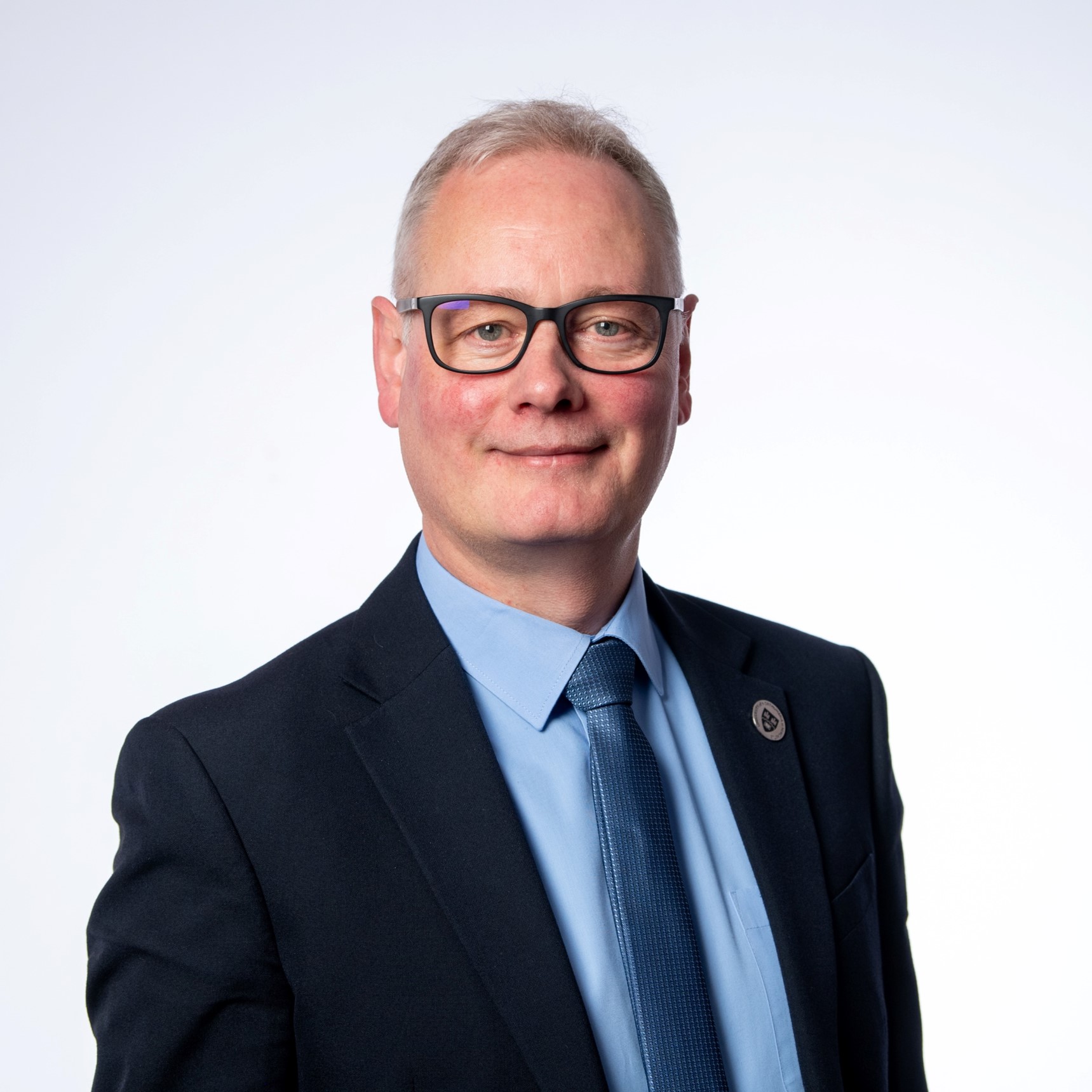
Graham is responsible for shaping and implementing Northumbria University's education vision and strategy. He provides strategic leadership across all educational activities, overseeing the design, implementation, and monitoring of quality frameworks to ensure consistently high academic standards.
Graham has led on the development of the University’s Education Strategic Delivery Plan, focusing on experiential learning and driving social mobility through education, this strategy includes embedding experiential learning opportunities, developing a Quality Enhancement and Development Framework for taught awards, and ensuring tailored support services for all students. The Education Strategy directly supports the Northumbria’s Strategy 2030 ambition of Powering an Inclusive Economy by embedding experiential learning in all undergraduate programs, enhancing students' employability and social capital. Additionally, his work on Driving Social Mobility involves providing tailored support services and eliminating disparities in student outcomes, ensuring equitable access and success for students from diverse backgrounds.
He is a Fellow of the Royal Astronomical Society (FRAS) a member of the Institute of Physics (MInstP) and a Senior Fellow for Higher Education Academy (SFHEA).
Professor Sir Liam Donaldson, Chair, North East and North Cumbria Integrated Care Board

Professor Sir Liam Donaldson is recognised as an international champion of public health and patient safety. He was the creator and foundation chair of the World Alliance for Patient Safety, launched in 2004. He is a past vice-chairman of the World Health Organisation Executive Board. In his current global health roles, he is the World Health Organisation’s Special Envoy for Patient Safety, Chair of the Independent Monitoring Board for the Global Polio Eradication Programme, as well as Chair of the Polio Transition Independent Monitoring Board.
In the United Kingdom, he is Chair of the Integrated Care System (ICS) for the North East and North Cumbria region of England (planning and providing care for three million people) and Professor of Public Health at the London School of Hygiene and Tropical Medicine. He was Chancellor of Newcastle University for 10 years until 2019.
Prior to this Sir Liam was the 15th Chief Medical Officer for England, and the United Kingdom's Chief Medical Adviser, from 1998-2010. During his time in this historic post (established in 1855) he held critical responsibilities across the whole field of public health and health care. As the United Kingdom's chief adviser on health issues, he worked with and advised six Secretaries of State for Health, two Prime Ministers and many other government ministers. He has produced landmark reports which have set health policy and legislation in fields such as stem cell research, clinical governance, quality and safety of health care, infectious disease control, patient empowerment, poor clinical performance, smoke free public places, medical regulation, and organ and tissue retention. He led the government’s response to the H1N1 influenza pandemic.
He has published over 300 papers in peer-reviewed journals and many technical reports for the UK government, the National Health Service and the World Health Organisation. He is author of a standard textbook of public health that has been in continuous print for nearly 40 years and co-author of the history of the Chief Medical Officers of England. He has made hundreds of media appearances as part of his professional roles and numerous keynote addresses, presentations and speeches at national and international conferences and events.
Sir Liam initially trained as a surgeon and went on to hold posts in academia, general practice, public health, healthcare management and the civil service.
Sir Liam has received many public honours: 17 honorary university doctorates, eight fellowships from medical royal colleges and faculties, and the Gold Medal of the Royal College of Surgeons of Edinburgh. He was the Queen's Honorary Physician between 1996 and 1999. He was knighted in the 2002 New Year's Honours List.
Jamie Hunt, Head of Education at the Health and Care Professions Council

Jamie Hunt is Head of Education at the HCPC. He has worked at the HCPC for about 15 years, mostly on matters of education quality assurance.
In recent years, Jamie led a fundamental change programme to deliver a new model of education quality assurance. This was co-produced with the sector, and shifted the way HCPC assesses and ensures the quality of education provision across the UK, for the 15 HCPC-regulated professions.
Jamie’s primary interest is on ensuring regulatory requirements are delivered within education and training, with a focus on current key initiatives and sectoral developments. An aim to reduce regulatory burden, whilst keeping quality high is central to Jamie’s public protection goals. Jamie works closely with stakeholders across the education and health sectors, including professional bodies, representatives from all four home countries, Higher Education Institutions, and commissioning bodies.
Watch our event films below:
To register your interest for future events, click here.



